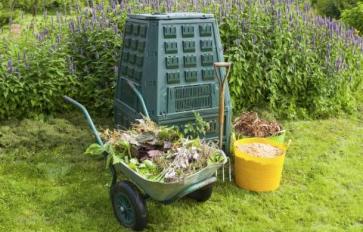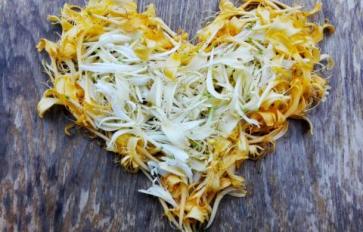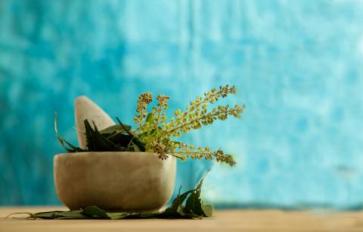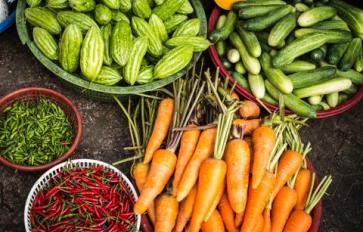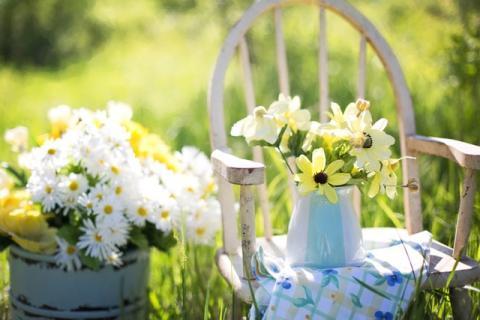
Container gardening can be a fun, creative, and easy way to grow your plants in various different kinds of containers both inside and outside. Although container gardening can be simple, there are definitely some things you need to keep in mind in order to grow successfully. Here are nine tips for better container gardening.
Tip 1:
Know the name and type of the plant(s). Okay, I have been totally guilty of doing this. I bought a beautiful plant once, completely forgot the name of it, and couldn’t even look-up how to care for it. It would have probably suffered had I not gone back to the store and asked the owner to write down the name. By knowing the name, it is easier to find information on how to properly grow your plant in a container. It would be really wise to label the plants growing in each container using gardening tabs, and you can even purchase some plants that come with tabs.
Tip 2:
Research your plant(s). Tips 1 and 2 go hand-in-hand. The best way for your plants to thrive while growing them in containers is to have knowledge of them, and how to make them flourish. Ask someone who is well-informed about the type of container plants you are growing. You can also easily research them online or at the library.
Tip 3:
Ensure proper drainage. The number one cause of death for container plants is actually not having enough drainage. When you do not have enough holes or the holes are too tiny in your container, the water cannot thoroughly drain. The end result—rotted roots. In order to enhance drainage, the recommended spacing for holes in the bottom of small to medium pots is a half-inch in diameter, and the larger pots are recommended to have a 1-inch diameter hole.
Tip 4:
Select the right container for your plants. This is crucial for creating the ideal environment for your container plants. Whether you have a small, medium, or large plant, make sure it has a container big enough to grow in. Your container plants need enough space to spread their root system. In addition to space, make sure they have drainage holes. Also, when placing your plants in some containers, such as terra-cotta containers, you will need to water them more frequently because containers like these have a tendency to dry out soil faster. (These types of containers work great for desert plants, by the way.)
Tip 5:
Use the right soil. Okay, another mistake I learned from growing plants in containers was that if you use soil from your garden, you will end up with a huge soil clump. The best kind of soil for container plants is organic potting soil, which is specifically created for container plants. Some plants require soil with rocky or sandy soil, while others require moister soils.
Tip 6:
Feed the soil. Healthy soil is just as important to container plants as it is to non-container plants. You will need to make sure your container soil is healthy and nutritious. Be sure to fertilize your container soil regularly by feeding it whatever nutrients it needs, and may be lacking in. If your soil is too old or very bad, you will need to replace it entirely.
Tip 7:
Give your plants the right amount of water. Some container plants like Aloe Vera plants require a very little amount of water while most other container plants often require a lot more water than the plants in your garden. In hotter, summer weather it is important to water your plants almost daily.
Tip 8:
Position your containers correctly. Place containers in areas according to the adequate amount of sunlight they require. If your plants require a lot of sun, make sure they are in an area where they can get a good amount of sunlight. Put your containers in shady areas or away from windows, for plants that require less, indirect sun exposure. All herb, veggies, and fruit plants must have good sunlight.
Tip 9:
Replace dying or dead container plants. All good things come to an end, even container plants. It is very common for plants to die when colder weather approaches, and while some come back when it gets warmer, most do not. It is best to just compost the plant along with the soil, and start all over again during the right season. If plants just happen to die for other reasons, remove the dead plants without harming the ones surrounding, and put in other ones to replace them.
The nine tips above are here to help you successfully grow plants in containers. By following these tips, I am sure your container gardening experience can be so much better.
Stay tuned for more organic home garden tips and ideas.



